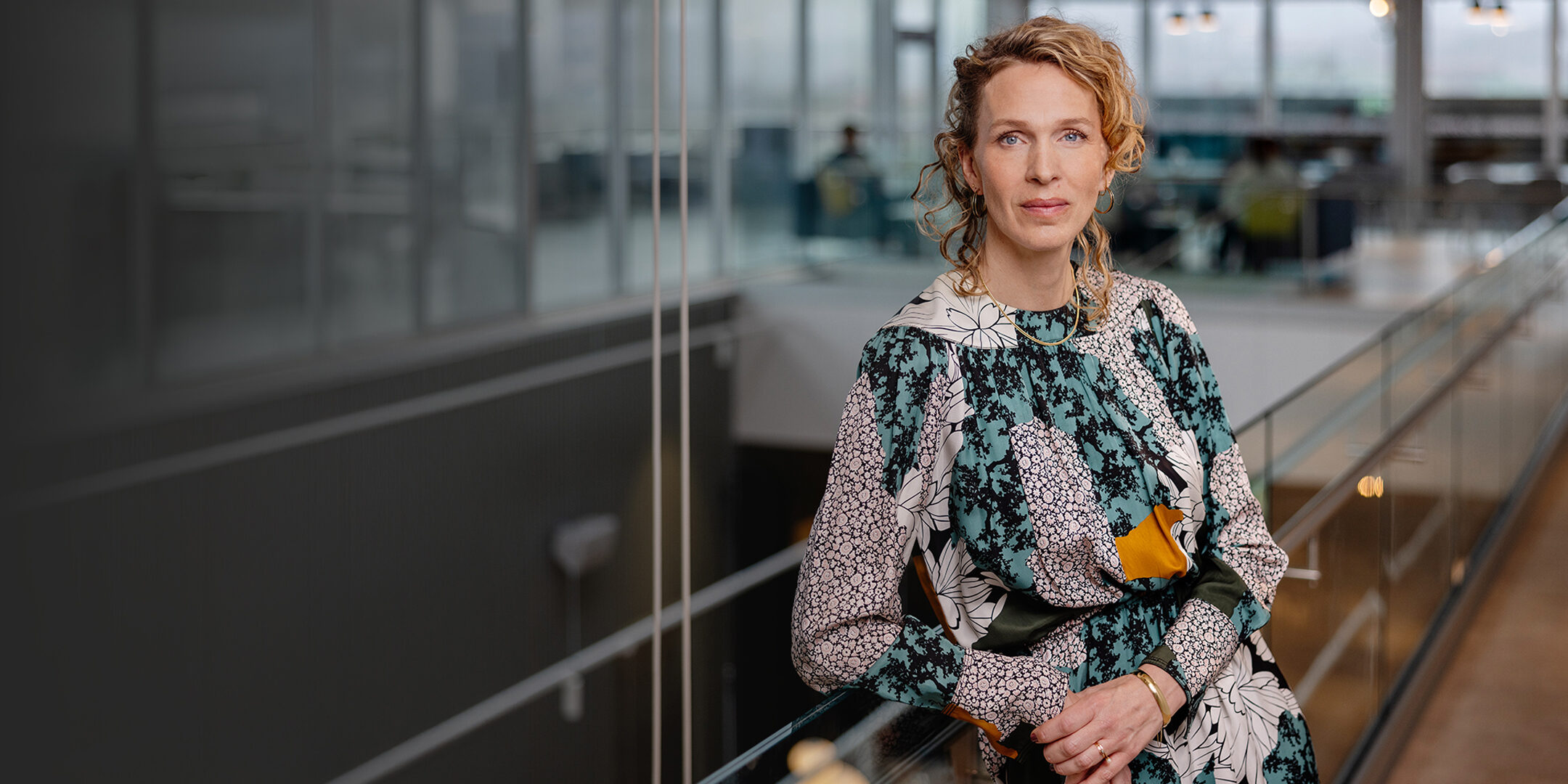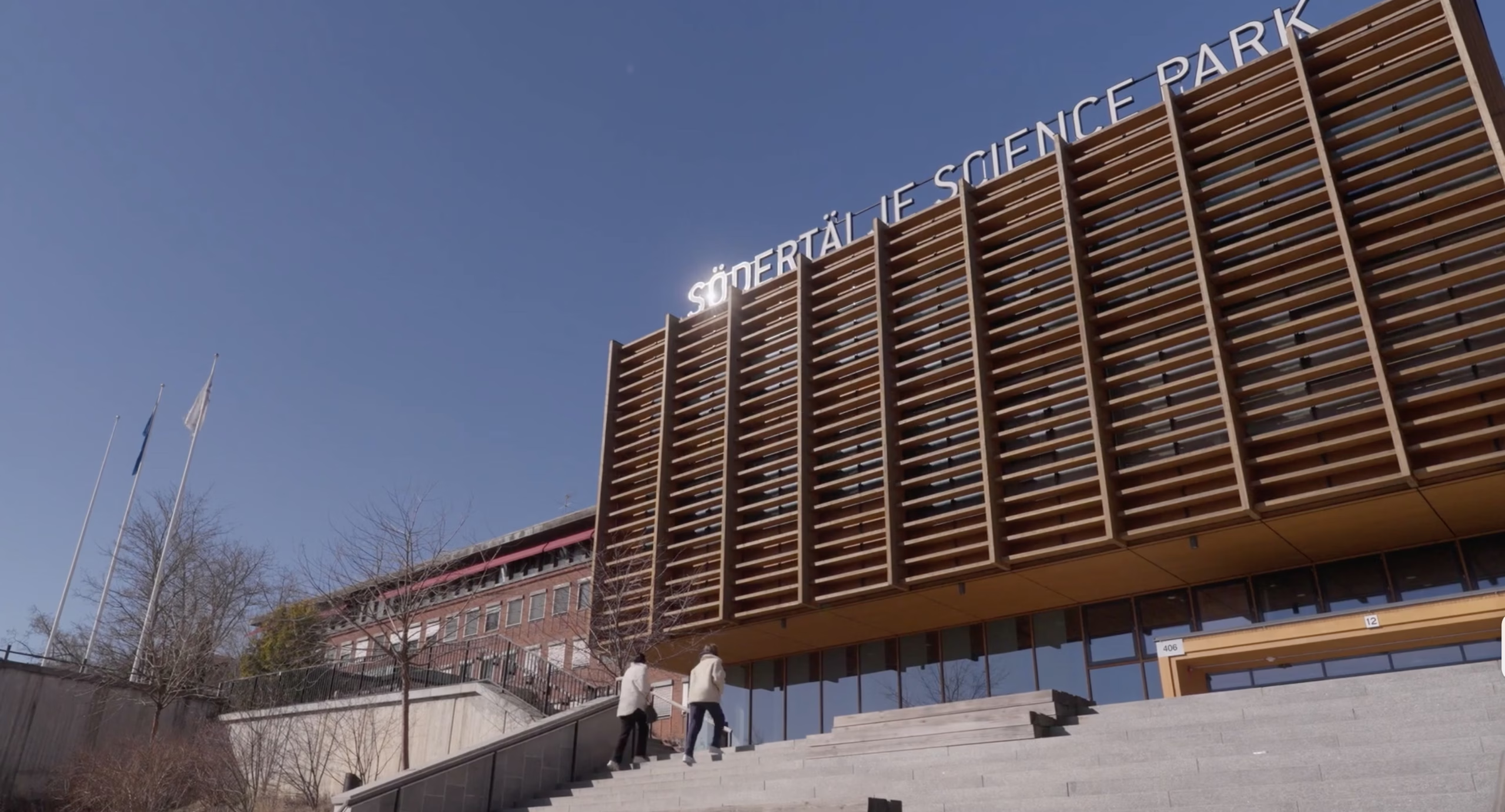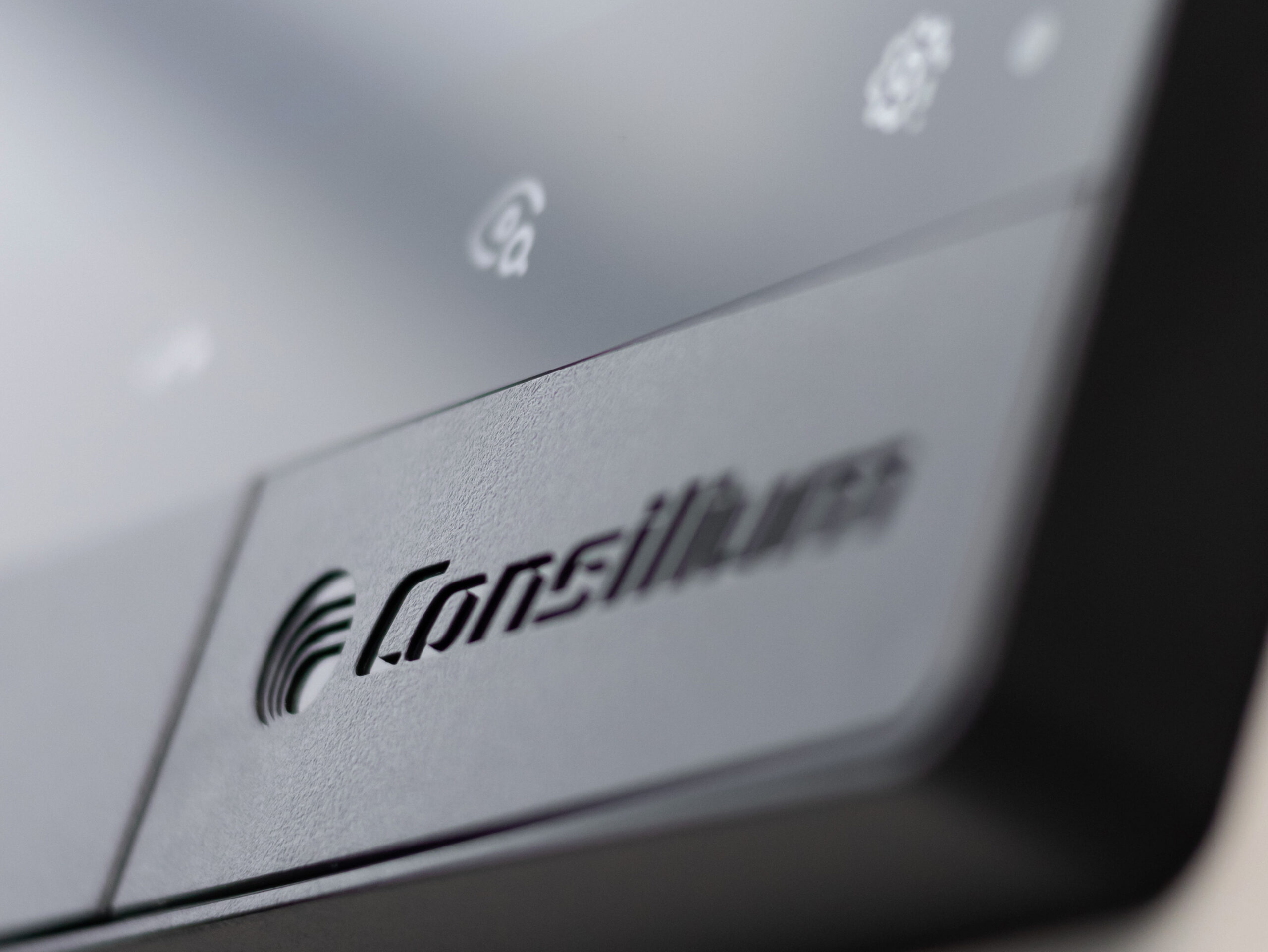Chief HR Officer Malin Lindén shares how Consilium Safety Group’s commitment to diversity isn’t just policy—it’s practice.
It was supposed to be a short Q&A for LinkedIn highlighting Consilium Safety Group’s diversity, equity and inclusion initiatives. Yet, as soon as we connected in a virtual meeting with their Chief Human Resources Officer, Malin Lindén, our plan transformed into something more profound.
The meeting extended the bounds of what one might expect from a corporate Teams call. Malin offered a passionate, hour-and-a-half-long talk about cultivating a sense of true belonging within Consilium Safety Group’s global framework.
She appeared on the screen with a rainbow backdrop merged into Consilium’s logo. This was a deliberate choice, not for temporary decoration for our chat but a bold visual reminder of the company’s commitment to diversity and a statement of solidarity during the ongoing Pride month.
“I don’t use this background because of our meeting,” she clarified, her smile briefly giving way to a determined seriousness.
“It’s the little things you must do all the time. It needs to be worn in,” she continued, emphasising how true inclusivity isn’t just a policy, but a practice woven into the very operations of Consilium Safety Group.
“We celebrate and honour all our visible and invisible differences”, Malin states.
Discussions about gender equality and equal wages were routine at dinner in Malin Lindén’s childhood home. Growing up with three sisters and a mother who staunchly advocated for these principles, the kitchen table became the first actual boardroom where issues of fairness were discussed.
“It is essential for me always to have this as a drive, to have fairness, “Malin states.
By championing EDI, Malin is convinced that Consilium is setting itself up for greater financial success and innovation.
“Let me put it this way,” she begins, as the lines between ethics and economics merge in her explanation.
“We are doing this because it will create a strategic advantage for us as a company. This involves our financial figures, drive forward, and our involvement in innovation. It’s about creating a better working environment for our employees.”
Studies show that diversity and inclusion’s impact on a company’s bottom line isn’t just theoretical; it’s quantifiable and significant. Research from Deloitte shows that diverse companies enjoy 2.3 times higher cash flow per employee.
Gartner found that inclusive teams boost team performance by as much as 30 percent in diverse environments. Yet only 40 percent of employees believe their manager fosters inclusivity.
Gallup’s 2023 State of the Global Workplace report reveals that organisations prioritising inclusive culture see a 56 percent increase in performance and a 37 percent decrease in absenteeism.
“The data says it all, leading to all these positive outcomes. For us, working strategically and structurally with these initiatives is a commitment”, Malin states.
Initiatives at Consilium
She gives examples to illustrate the breadth of initiatives underway at Consilium Safety Group.
“We have several initiatives, like the Flexible Holiday Policy. Employees can take time off for cultural or religious reasons, even if it’s not a public holiday”.
One of the initiatives traces back to her family’s dinner table: equal pay for equal work, regardless of gender.
“We are also setting up a stronger framework for gender pay gap analysis. Equal pay is a measurable EDI action that we can quantify. That’s one of the key areas we’re addressing by developing a global job structure”.
She emphasises the need to involve every part of the organisation globally, from leaders and employees to customers.
“These initiatives are integral to our sustainability strategy and closely linked to our ESG goals. We are a group that works with this and meets regularly. It’s not about just hitting targets. Instead, it’s more about, how shall I say, measuring our progress against our goals.”
The work is divided into three levels.
“First, we have to establish our baseline,” she says. “We must start measuring to see what we need to do next. From there, we can set our goals and strategies, creating the conditions necessary to achieve even bigger targets.”
“The final step,” she continues, “is to benchmark against the industry through an external party. Our ambition is to become the most diverse company within our industry by 2035″.¹
A male-dominated industry
Consilium operates in an industry traditionally dominated by men, particularly in engineering roles—a reality that complicates efforts to achieve gender equality.
“We employ many engineers,” she says. “Of course, we’d love to say, ‘Yes, we’ll reach a 50/50 gender balance´ but reaching that quickly is tough.”
Consilium has implemented specific methods to address this, such as using inclusive language when writing job advertisements.
“We run all job adverts through a gender decoder. If any terms or words we use are too male-oriented, we adjust them to be neutral and inclusive, ensuring the language appeals to everyone.”
Malin also highlights other initiatives.
“All recruiting managers receive training in inclusive recruitment and unconscious bias,” she says. “It’s about recognising the lens you’re looking through.” She pauses, placing her hand thoughtfully under her chin, then continues:
“Getting management on board is crucial, and we must be straightforward. These might seem like soft issues, but sometimes you need to be a bit tough on the soft issues to make real progress.”
Signs of progress
She points to positive examples that give hope and push their mission forward.
“In 2024, about 45 percent of our new hires were women. We’re actively measuring and refining our approach to ensure progress”, she says and continues:
“In Bulgaria, we have 52 percent women and 48 percent men. This balance is consistent across all our production companies”.
“We value our diverse perspectives—they bring richness and resilience to our work and positively impact how we engage with customers, it really reflects our dedication to building an inclusive global culture”.
But she quickly adds that there’s still work to be done.
“At the beginning of the year, we were at 24.4 percent women company-wide. Now we are at 28,2 percent.
These aren’t massive leaps, but they represent something meaningful for Consilium.
“Things are moving in the right direction. Looking back, we’ve found it quite difficult to increase. So, I’m quite happy we’ve come closer in these six months. If we continue the same trajectory, we will reach a 40/60 gender split in five years”.¹
A global company
Diversity varies widely in a global company like Consilium, with offices in 29 countries. Each location brings its own set of goals shaped by local culture and history.
In India, for instance, linguistic diversity is critical. The constitution recognises 22 official languages, so ensuring representation across these languages is crucial.
“The challenges differ depending on where you are,” Malin explains.
Consilium has developed dashboards for each country to track progress. The company has 27 MD´s who work closely together.
“We sat down individually with each one and reviewed the data, saw where each region stands, and asked, ‘What are you doing? How will you move forward? How can we reach our goals?”.
Targets are set region by region, recognising that while some areas are already making significant progress, others need to push harder.
”We have regular meetings with all the MDs. We sit down and review everything, ensuring we’re on track.”
Importance of Intercultural Communication
Working closely with regional teams, Consilium recognised that effective communication is vital in a global organisation. This led to creating a program focused on intercultural communication to understand how communication varies across cultures.
“The lecturer took us through different models and scales that help us understand how to communicate effectively in different countries,” Malin explains.
The training covers essential topics such as why communication can be challenging between countries, the role of hierarchies, and how to give feedback appropriately across cultures.
“It’s fascinating to see where different countries fall on these scales,” she says. “You look at Sweden and India and realise we’re all over the spectrum. It’s not easy, but it’s essential. This program is now being rolled out to all employees”.
These initiatives are not opposed at Consilium. They are deeply ingrained in the company’s culture, which Malin believes is a key factor in its progress.
“We are working under the concept of One Consilium. We’re a matrix organisation, and our core values are well-established. People know them; they’ve been around for 15 years”.
Employees can nominate their colleagues who embody these values every quarter. New employees often describe the atmosphere as family-like, warm, and engaging.
Impact of Inclusion
Malin also highlights how employees are actively involved in discussions.
“What are we doing today in this area? What does this issue mean to us? What are we doing well?” she asks. “Even a brief 20-minute team discussion can bring these topics to the forefront, driving engagement and reinforcing the company’s values”.
Malin recalls a recent lunch with a colleague who had never had women on his team.
“It’s an engineering-heavy role, and we had struggled to find female candidates. But now we managed to hire one, and another has just started. He’s already noticing a big difference in the team’s dynamic.”
The change was evident, reinforcing what Malin already knew.
“The important thing is for people to gain those insights,” she explains. “It’s like a hockey stick effect—you push past a certain point, and then the change starts happening on its own.”
Critics might say these initiatives are costly—what would you say to them?
“That’s where pragmatism comes in. You must work from different angles and integrate it into all processes. It shouldn’t be a separate task running parallel to the business,” Malin explains and continues:
“These training programs—they’re just an hour or two. The key is to do them consistently and keep them on the agenda.”
“In the end,” she added confidently, “the payback is much greater than the cost”.
Looking ahead, Malin believes that Consilium is on the right path but views this as an ongoing journey.
“There’s always more to do, and we’re ready for it.”
¹Consilium policy is applied solely in accordance with the laws and regulations of the jurisdictions in which the company operates. U.S.-based employees are not subject to the company’s EDI policies or organizational targets



